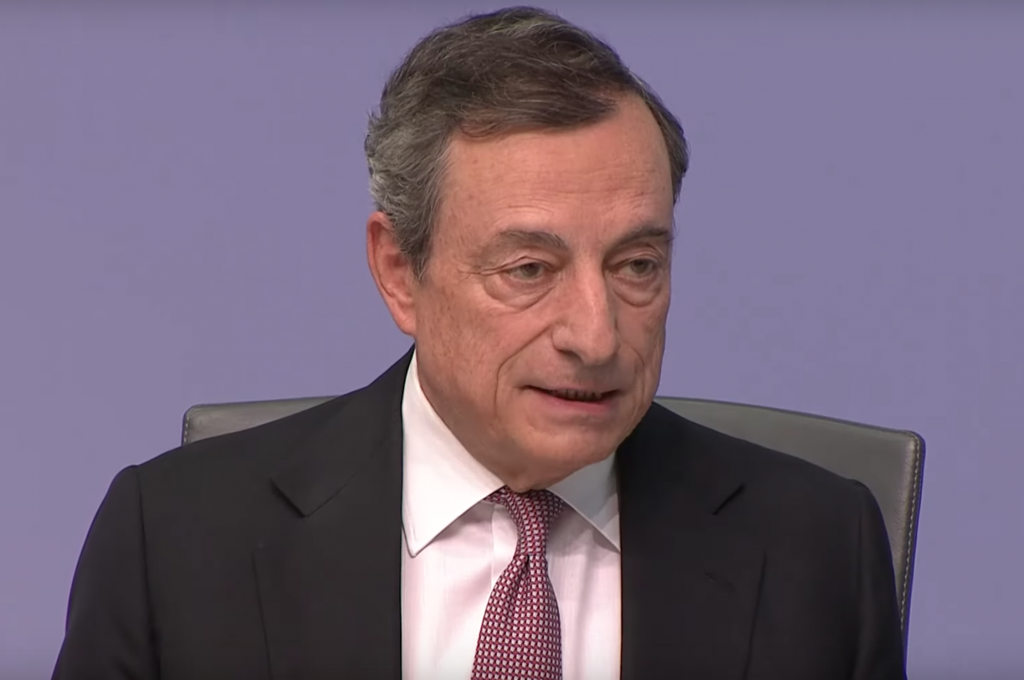
In what was received by analysts as a very dovish message, the European Central Bank's Mario Draghi promised "accommodative" monetary policy in order to spur the weakening eurozone economy. The question is, why not now? Inflation remains well under target levels, the eurozone PMI reported yesterday is a paltry 51.5, and major drivers Germany and Italy show no signs of rebounding from a string of disappointing manufacturing reports. Investors complained that Draghi's remarks offered few specifics.
Trading has been volatile following Draghi's comments, with reversals in stocks and the Euro trading higher. Few analysts connected this to German Finance Minister Olaf Scholz's overlapping Bloomberg Television interview as the reason for the reversal, as his comments dashed any hope of Germany participating in fiscal stimulus. Scholz spoke right in the middle of Draghi's comments.
Draghi said, “If there were to be a significant worsening in the Eurozone economy, it’s unquestionable that fiscal policy--a significant fiscal policy, mostly in some countries but also at the Euro-area level--becomes of the essence." Juxtapose this with Scholz, many miles away but only minutes apart, saying, “We are not in a situation that makes it necessary or wise to act as if we were in a crisis, we are not." He added, "the wrong kind of stimulus can lead to higher prices without growth."
Ford stock was down almost 7% today after missing their earnings target. The loss comes despite strong year-to-date performance after announcing a restructuring of the automaker's lineup in the spring of 2018. A spokesman offered diluted guidance "based on the current economic environment, including the status of commodities, foreign exchange and tariffs."
For Nissan, where earnings were down 99% and revenue declined 13%, the factors contributing to losses are a slowdown in global demand due in part to US-China trade disputes, weakening US market share, and new emissions standards that add cost to the production of each unit. Nissan plans to slash 12,500 jobs as a result, more than double prior estimates. The lingering stench of former chairman Carlos Ghosn's legal worries doesn't help matters.
At Tesla, the issue is the different from Ford and Nissan's, but familiar to investors: failure to consistently match deliveries to demand, profitability to what the market will bear, and the revolving door of top brass. The stock was down 13% on the earnings miss, and down over 30% for the year, despite strong Model 3 sales and record deliveries. CTO and co-founder J.B. Straubel has departed the firm but plans to stay on as an adviser. Considered by many to be the second most important employee at Tesla, the news inspires no confidence among investors.
Subscribe to our evening newsletter to stay informed during these challenging times!!